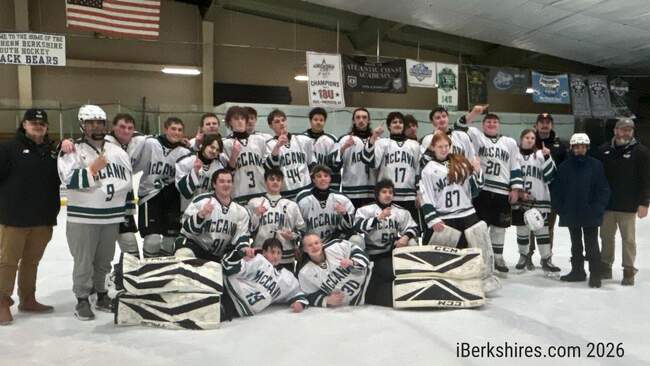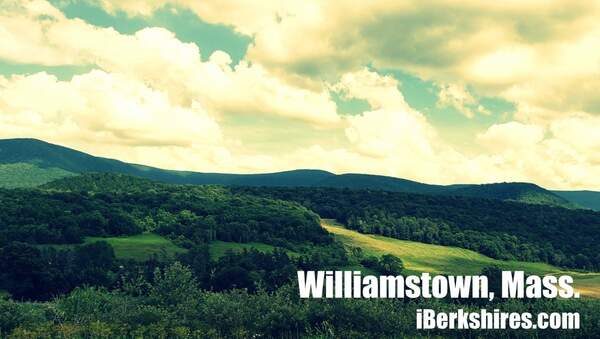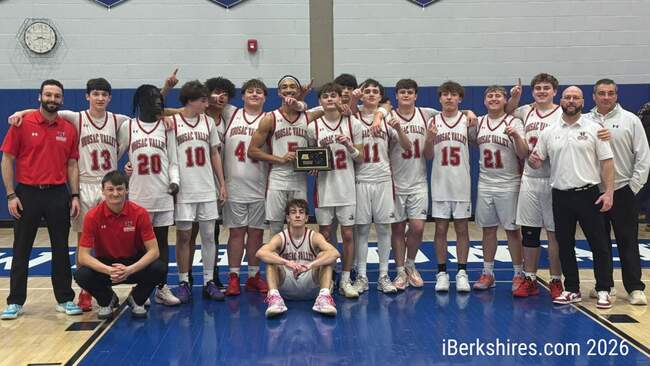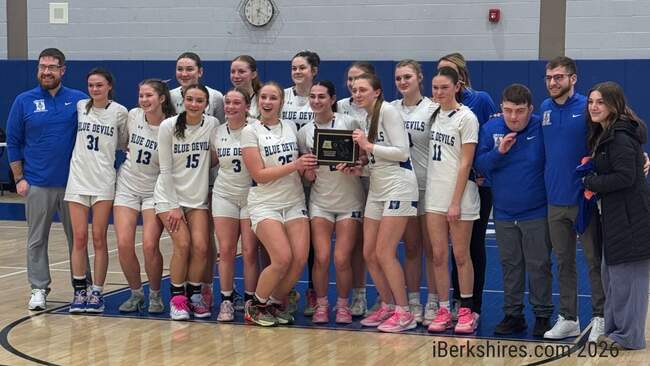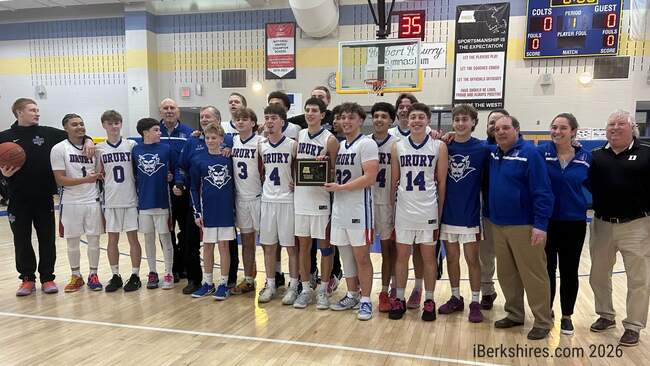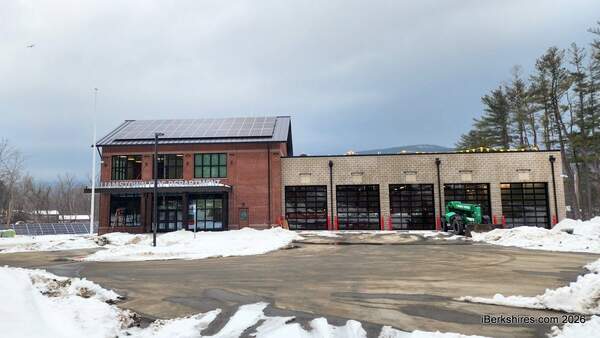Letter: Williamstown's Racist Legacy
 |
To the Editor:
Williamstown White-Only Village: The Force of The Unenforceable on My Black Family
"Profoundly sad" is the insensitivity of the correlation between the duration of the officers suffocating the life out of George Floyd and how Black lives feel under the knee of 70 years of "inoperative" racist laws that are still psychologically effective covenants of the white-only Village Beautiful.
Eight minutes and 46 seconds of the screaming of bystanders pleading for corrective action, George Floyd begging "I Can't Breathe" and then — after the living would not listen — George began holding a" listening exercise" with his dead mother. In honor of the Black lives who lived under the knee of this white supremacy Jim Crow law in Williamstown, I write in the voice of my great-grandfather and mother, the Logans. Perhaps it will inspire us to take our hands out of our pockets and stand up in a response of sensitive action recognizing how suffocating Colonial Village feels and has felt to Black lives for a long time.
What do you hear and feel as a non-Black person in a listening exercise? What we hear loud and clear as Black and indigenous people when we hear "Colonial Village" is a settlement erasing indigenous claims of land ownership and thwarting Black immigration north from gaining any land ownership. This is what we hear and see in Colonial Village's racist legacy when the property deeds continue to declare it a white-only neighborhood. It is an unambiguous conclusion based on the black ink on the deed purposed with the white supremacist colonial project in mind.
This was enforced on my family as Black residents who worked and lived in the basement of Spencer House at Williams College (then Khi Psi House) — a couple with two children looking for housing in Williamstown. This restrictive covenant was only one-fourth of the restrictive system of oppression that knelt on the neck of the Logan family in Williamstown. By the grace of God, Williamstown had another Black family in town, the Harts, because no one else would rent to my Black relatives. They moved from the basement to an apartment with the Harts on Arnold Street near the Mill housing.
I asked my great-aunt and -uncle what they heard and saw Colonial Village as residents and they all say: "Whites-only. We were told as children to avoid going in there because it was unsafe and unwelcoming for Black people."
So if the residents of Colonial Village want some time to begin listening exercises, I ask them to start by walking across the street to speak to my great-grandfather and -mother buried there who suffered from the legal policies of white supremacy that Colonial Village continues as they keep their hands in their pockets and remain on bended knee.
Those who care to begin with listening to the anti-Black racist victims of this restrictive covenant start at the top of the hill underneath the American flag, you will find Harold Logan Sr., my great-grandfather. What makes me profoundly angry and hurt, is thinking about what level of pain and discomfort the residents in Colonial Village need to hear during their exercises before they take a stand of corrective action. There is an obvious tone-deafness to the extremely painful ramifications of these northern Jim Crow laws.
My great-grandfather was quite literally drafted at age 33 to serve in the U.S. Navy in 1939 during World War II while his hometown penned an exclusionary legal covenant under the democracy he risked his life for to thank him for his service. White servicemen who returned to Williamstown were welcomed into Colonial Village by their white neighbors. Colonial Village, upon my great-grandfather's return from service, let him know his kind were not welcome with the full weight of the enforceable law. When you start your listening exercises, I hope you ask my great-grandfather what that felt like to nearly die for this country and come home to only be able to live in the basement of a fraternity house with his Black wife and two Black children.
While you are listening to my ancestors in the graveyard across the street from your village, ask my Black great-grandmother who remained behind about her feelings and thoughts as a Black life in Williamstown. Colonial Village to her meant you can come to clean our houses but you best be moving along to your parts of town. Actually you will find out she was allowed into Colonial Village but only as a domestic worker to clean the homes to earn extra money to support my family in my great-grandfather's absence. My great-grandmother by day cooked in the kitchen in the fraternity house at Williams but on weekends she found extra income cleaning white folks' homes. When some kind Williams fraternity students wanted to rent out their home to my military family, it was prohibited for my Black family to accept the house in Colonial Village. She would know about how enforceable this was at this time due to the no-occupancy covenant in Colonial Village.
The second racist system operative in Williamstown meant that it would be two decades that my great grandparents would look for a bank to give them a loan to buy a home — unsuccessfully. It took two white men from their fraternity house to co-sign a loan from Adams Bank; then — finally — my great grandparents now in their fifties would finally purchase a home on Maple Street.
Invite my father to your listening exercises. He would love to share his story about his treatment in and banishment from Williamstown. You would hear an eerily familiar fear-mongering trope heard around town even today about the Black flight from New York to invade our Village Beautiful. It would be eight years later in the summer of 1962 that my father, my Uncle Dennis, Aunties Alice and Mary, and grandmother Jackie would come to Williamstown to visit their grandpa's house from New York on a Trailways bus.
Before their bags were unpacked, all the boys went outside to walk to the park to play. However, when they walked down the street some white young boys who were residents comfortable using the derogatory term "nigger" to refer to Blacks asked my Uncle Harry: Who were those niggers with him? My father, who was growing up in Harlem, was pained with that racial slur and considered it fighting words. Upon their return from the park, a small white mob of professionals from Williams College had gathered outside my great-grandfather's house to demand that his grandchildren and his daughter leave town immediately back to New York.
In 1962, fraternities were on their way out and these college administrators promised if my father remained in town both my great-grandfather and -mother would lose their jobs with Williams, who was negotiating with fraternities to hire their student affairs and facility staff. So my family had no opportunity for a listening exercise of restorative justice. Instead, the third system of racism — the white mob elite — made my grandmother and her four children grab their unpacked bags and leave on the next bus out of town to NYC. It was a normal restrictive covenant that Black people understood because my grandfather (my father's father) escaped Florida because his brother was lynched for being accused of looking at the leg of a white woman he chauffeured for his business. Fear and trauma from economic and physical harm, the fourth system of the force of anti-Black racism would prevent my family from returning to Williamstown.
For this reason, I find it peculiar when white people find it necessary to engage in listening exercises about Black pain and suffering before taking any corrective action. Black people live with and carry on a sustained experience of exclusion from the colonial village called America. Barbara Logan O'Neil, my aunt, and Uncle Harry Logan, Jr., who grew up here in town, were told as children where they could go in town and where they were to avoid for their own safety.
Colonial Village, to my still living aunt and uncle, is a place that meant and still means in their lived memory shared by their parents, a place built and established for those who hate Black lives. My Black family felt the full force of the meaning and weight of the law of its exclusive purposes in this white-only Colonial Village. When you begin your listening exercises — which reminds me of the painful listening exercises that happened with the exiled Spruces' poor residents — I hope you listen and you are able to hear the voices of my family. What that voice would say to you is: Erase nothing from the historical record of property deeds but strike a line through it and add another line that rededicates this community in word and deed as a welcoming one not named Colonial Village.
No matter how many temporary lawn signs sit on individual lawns, no matter how diverse it has become for residents until the stake in the ground is changed and deed amended acknowledging its racist legacy but affirming its inclusive present and future — my family and Black-lived experience will still feel and see the knee of an insensitive community resting on our necks.
Bilal Ansari
Williamstown, Mass.
Tags: racism,

